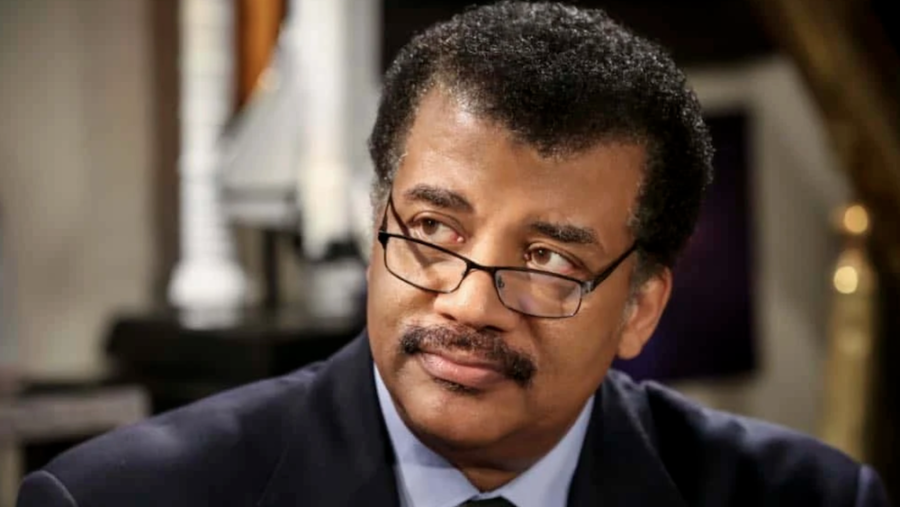Neil deGrasse Tyson Thinks Humans Are Stupid For Aliens To Contact

Neil DeGrasse Tyson might not think all that much of the human race. Why? Well he explains it Fermi Paradox might have a lot to do with it.
The Fermi Paradox illustrates the apparent contradiction between the high likelihood that intelligent life exists somewhere out there and our lack of contact (or proof of contact) with any of those civilizations. Neil DeGrasse Tyson understands as much.
The Paradox rests on the idea that billions of stars and galaxies are much, much older than ours and that many of them contain habitable planets (the Kepler telescope has confirmed this). Some of those must support life. And where there’s intelligent life, there’s technology, particularly in terms of interstellar travel.
The key question, then, of the Fermi paradox is: why haven’t we been visited by aliens? In an interview with Business Insider, astrophysicist Neil deGrasse Tyson shared some “unorthodox” thoughts about why that might be.
Neil DeGrasse Tyson suggests that maybe they have visited us, but no one noticed—especially if they came to Times Square or Comic-Con (aren’t they pretty much one in the same?).
More seriously, Neil DeGrasse Tyson argues that our “hubris forces us to think of ourselves as intelligent” because we’re smarter than other animals on earth.
By way of analogy, he says that when we encounter other beings on Earth, we don’t think about their intelligence — we only think about them as being inferior to us. So perhaps we have been observed by aliens, Neil DeGrasse Tyson says, but when they examined us, they concluded that there’s actually no sign of intelligent life on Earth.
Ha! I love that theory, and if the aliens read the tabloids or watch reality television, it’s not difficult to see how they’d arrive at that conclusion.
Neil DeGrasse Tyson also argues that humans don’t have a sense of the scope of space at all. Clutching a globe, he puts everything into perspective.
The International Space Station, for example, is about “3/8ths of an inch” from the surface of a globe.
In other words, that ain’t space! The moon is about 30 feet away, and Mars is a mile away. Where is the nearest star system? “Forget it!” We drive around the block and aliens traverse real space, so they’re far more advanced than we are. Agreed, NdGT. Agreed.
Then Neil DeGrasse Tyson turned his attention to Stephen Hawking’s fear that aliens will “suck our brains out.” Hmm…I hadn’t heard that one, to be honest, but okay, sure. He likens it to all the times humans have colonized (i.e., destroyed) less advanced civilizations and argues that Hawking’s fear reflects what he knows about humans rather than what he might know about aliens. Makes sense, especially because, as far as I know, Hawking hasn’t made a love child with an alien.
To sum up, Neil DeGrasse Tyson suggests that maybe the answer to the Fermi Paradox is that we’re just too stupid to be worthy of a visit from extra-terrestrials. Unless they’re ALF.
Neil deGrasse Tyson is an astrophysicist, author, and science communicator. He also hosts StarTalk Radio, where he discusses everything from antimatter to faster-than-light travel.
He was a student of and friends with Carl Sagan, and knew as a teenager that he wanted to study astronomy: “So strong was that imprint [of the night sky] that I’m certain that I had no choice in the matter, that in fact, the universe called me.”
He has argued exhaustively to expand NASA’s operations, testifying before the U.S. Senate Science Committee that NASA’s annual budget is a joke, which I suppose is just further proof for his “stupid humans” theory.












